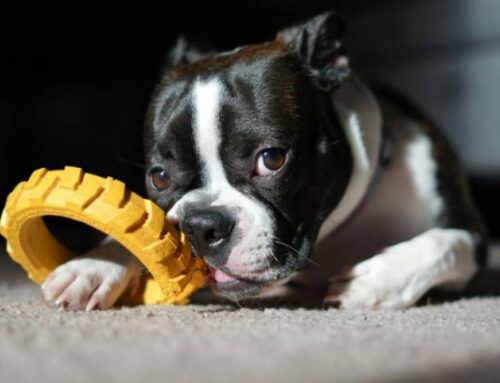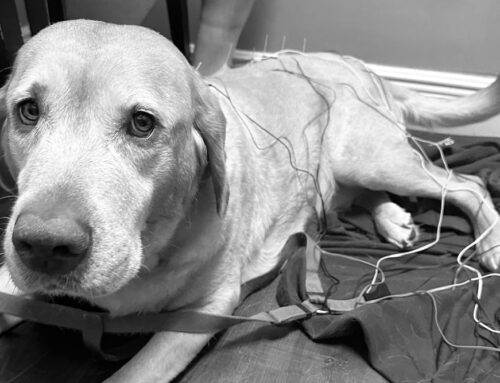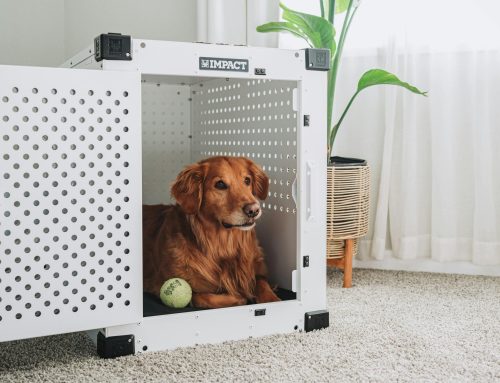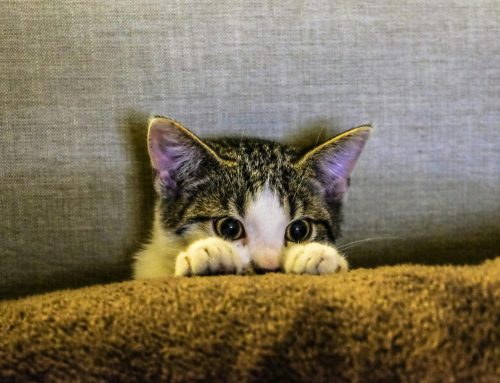Many of us have experienced a dog or cat with bad breath. We all know that our pets sometimes eat things that we would prefer they not, but often that bad breath is a result of dental disease, not our pet’s poor choice in snacks. Just like us, it is important to have your pet’s teeth checked routinely as this disease can cause serious problems for many animals. It is not just the tartar that causes a problem, but we often see disease of the gums or under the gums. At West Park Animal Hospital, our veterinarians do a complete, nose-to-tail exam during every annual wellness checkup and that includes a look in your pet’s mouth to check the status of their teeth. If you’ve ever had a dental problem, you know how painful these conditions can be, and our pets experience that same pain. The good news is that there are many things you can do to keep you pet’s teeth strong and healthy throughout their life.
There are some simple things you can do at home to prevent dental disease. These include brushing your pet’s teeth. This may seem like a daunting challenge at first, but if you start small and don’t stress your pet during the process they can actually grow to enjoy the process. Even some of our cat patients are good for their regular brushing. If you do decide that this is something that you can take on, there are many different type of brushes you might try, from a finger brush up to a standard soft human toothbrush. You do need to use a pet specific toothpaste. One of our go-to products is the CET toothpaste. We find that poultry or vanilla are favorite flavors of our patients.
There are also a number of treats that are designed to eliminate plaque and tartar buildup. While many supplements or pet products claim to help teeth, we prefer to use only those recommended by VOHC, which is an independent organization that reviews these claims to make sure they are valid. They maintain separate lists for dogs and cats.
Many people ask if it is ok to feed their pets bones, or hard chews to keep their teeth clean. While some pets chew these for their entire life and never experience a problem, unfortunately, as vets, we do see frequent cases of teeth fractures from these products. This is particularly common in large breed dogs that chew aggressively. If your pet is particularly prone to dental problems, which is common in certain small breed dogs, you might consider feeding a diet specifically formulated for this condition.
Good oral hygiene is important, but not necessarily “one size fits all.” It may take a little trial to find out what works best for your pet, but all of that hard work is certainly worth it. Finally, do not be discouraged if over time, your pet is accumulating plaque, tarter or starting to show signs of gum disease despite your very best efforts. Just like their human counterparts, dos and cats may still need a teeth cleaning with a veterinarian despite the very best dental routine, and it is quite likely that your efforts have postponed that teeth cleaning quite a bit.
If a veterinarian or one of veterinary staff notice that your pet has dental disease we may recommend a more detailed exam, and cleaning under anesthesia. We’ll cover the importance of these complete oral health exams and treatments in our next blog post.
If you are looking for a vet in Keystone, Odessa, Westchase or the surrounding areas of Tampa that will listen to your concerns about your pet’s dental health, and help you make the right decisions for them, call us at (813) 749-6863 to schedule an appointment. Of course, you can also, always request an appointment online.






Leave A Comment